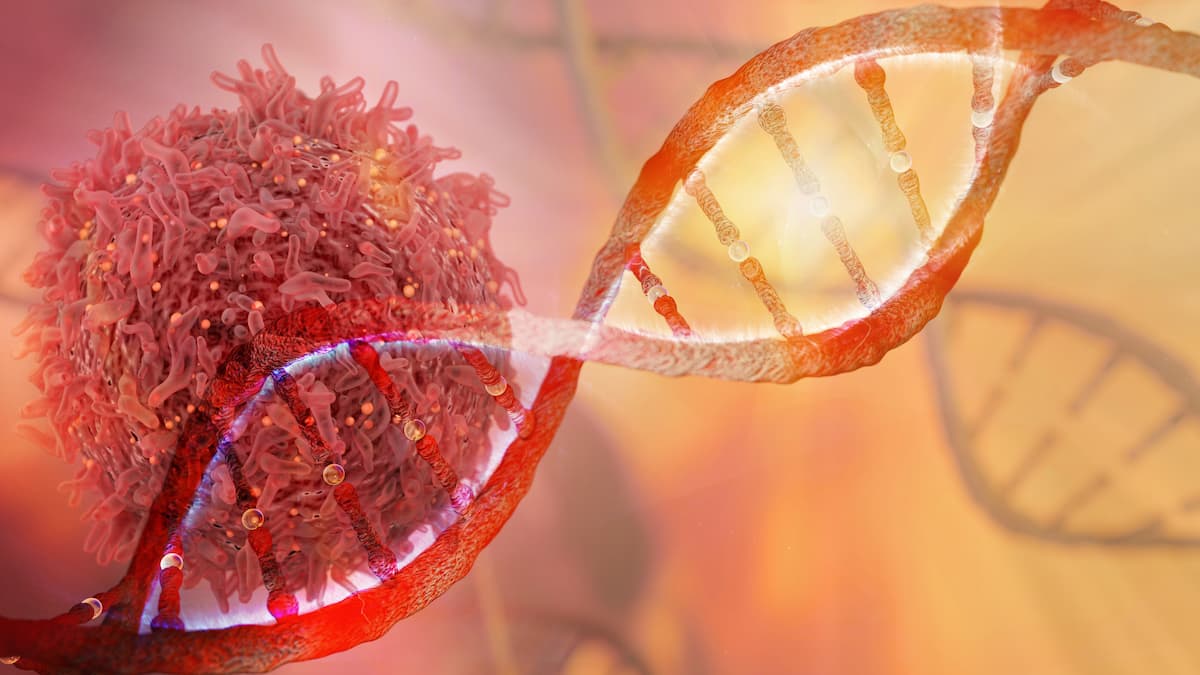Nurse-Led Program May Increase Germline Testing in Black Veterans With Cancer
The association between use of a telegenetics service and lower likelihood of germline testing was statistically significant among black veterans with cancer, according to a recent retrospective cohort study.
"Although telegenetics has greatly expanded access to genetics evaluations, it is possible that a face-to-face interaction with a provider on site may be a better method for delivery of genetics consultations, given the inherent complexity in these encounters, particularly in the veteran population," according to the study authors.

Use of an on-site, nurse-led genetics service was associated with higher odds of germline genetic testing completion in Black veterans with cancer vs a telegenetics service, according to data from a retrospective cohort study published in JCO Oncology Practice.1
An unadjusted analysis found that the likelihood of completing germline testing was more than 3 times higher among veterans using the onsite genetics service than among those using the centralized telegenetics service (Relative risk [RR], 3.22; 95% CI, 1.89-5.48). An ensuing multivariable analysis also found an association between use of the on-site genetics service and likelihood of germline testing among the assessed veteran population (adjusted RR, 2.58; 95% CI, 1.32-5.07; P = .006).
Moreover, there was a significant interaction between the likelihood of germline testing, veterans’ self-identified race or ethnicity, and the use of on-site services vs telegenetics (P = .016). Among non-Hispanic Black veterans, use of the on-site service correlated with a more than 4-fold higher chance of germline testing vs use of the telegenetics service (adjusted RR, 4.78; 95% CI, 1.53-14.96; P = .007). A similar association occurred among non-Hispanic White veterans, although it was smaller and not statistically significant (adjusted RR, 1.46; 95% CI, 0.74-2.88; P = .276).
“Without a doubt, telemedicine has many benefits, but this research shows that when it comes to genetic counseling and testing, in-person consults are most impactful,” Howard R. Soule, PhD, executive vice president and chief science officer at the Prostate Cancer Foundation (PCF), said in a press release on these findings.2
PCF provided support to this study, along with other organizations.
Investigators derived these data from an assessment of 238 veterans who received consultations for genetic testing through the Corporal Michael J. Crescenz Veterans Affairs Medical Center between October 2020 and February 2021. Of this group, 130 used the centralized telegenetics service, and 108 used the on-site genetics service. The final analytic cohort comprised 121 patients from the overall population.
In the descriptive analysis, veterans who used the on-site genetics service were a median of 71 years old (interquartile range [IQR], 61-74), whereas those who used the telegenetics service were a median 57 years old (IQR, 42-67). A greater proportion of those who used on-site services were male (91.7%) vs those who didn’t (57.7%).
Those who used the on-site services were also more likely to have a personal history of cancer as the indication for their consultation (93.5% vs 41.5%) and to be referred by the oncology service (92.6% vs 34.4%) rather than the women’s health, gastroenterology, or primary care service.
Black veterans comprised the majority of both the on-site (54.6%) and telegenetics (51.5%) groups. White veterans made up the second-most prevalent racial identity in both groups, comprising 42.6% and 41.5% of the on-site and telegenetics groups, respectively.
The possibility of outcome misclassification was one limitation investigators attributed to this study, as any veteran who completed genetic testing outside of a Veterans Affairs (VA) institution would have been classified as not completing testing, introducing potential bias. Other potential limitations included unmeasured cofounding and the fact that VA institutions eliminate some barriers to germline testing, which may affect outcomes in non-veteran populations, according to the investigators.
“Although telegenetics has greatly expanded access to genetics evaluations, it is possible that a face-to-face interaction with a provider on site may be a better method for delivery of genetics consultations, given the inherent complexity in these encounters, particularly in the veteran population,” the investigators wrote.
“It is imperative to optimize these interactions and facilitate genetics services follow-up, as the ultimate results from testing—if indicated—have profound implications on matters that are important to patients: standard-of-care treatment and clinical trial options for patients as well as screening practices for family members.”
References
- Shevach JW, Aiello LB, Lynch JA, et al. On-site nurse-led cancer genetics program increases cancer genetic testing completion in Black veterans. JCO Oncol Pract. Published online May 23, 2023. doi:10.1200/OP.22.00738
- Prostate Cancer Foundation-funded study sheds light on improving access to precision oncology care for U.S. veterans with prostate cancer. News Release. Prostate Cancer Foundation. May 24, 2023. Accessed May 26, 2023. prn.to/3WFldBs
How Supportive Care Methods Can Improve Oncology Outcomes
Experts discussed supportive care and why it should be integrated into standard oncology care.